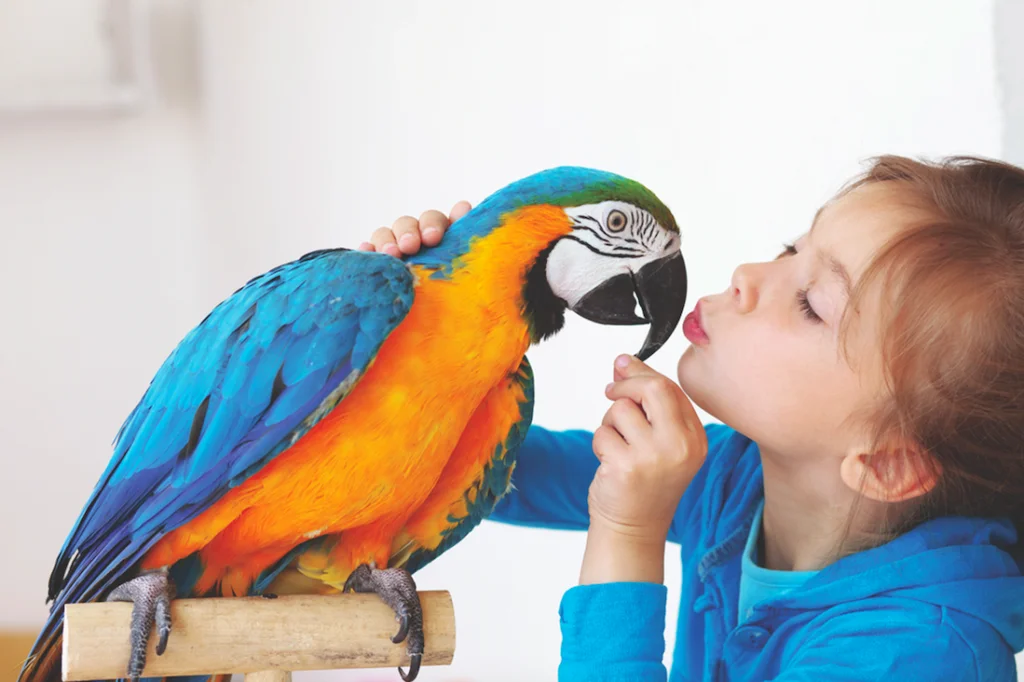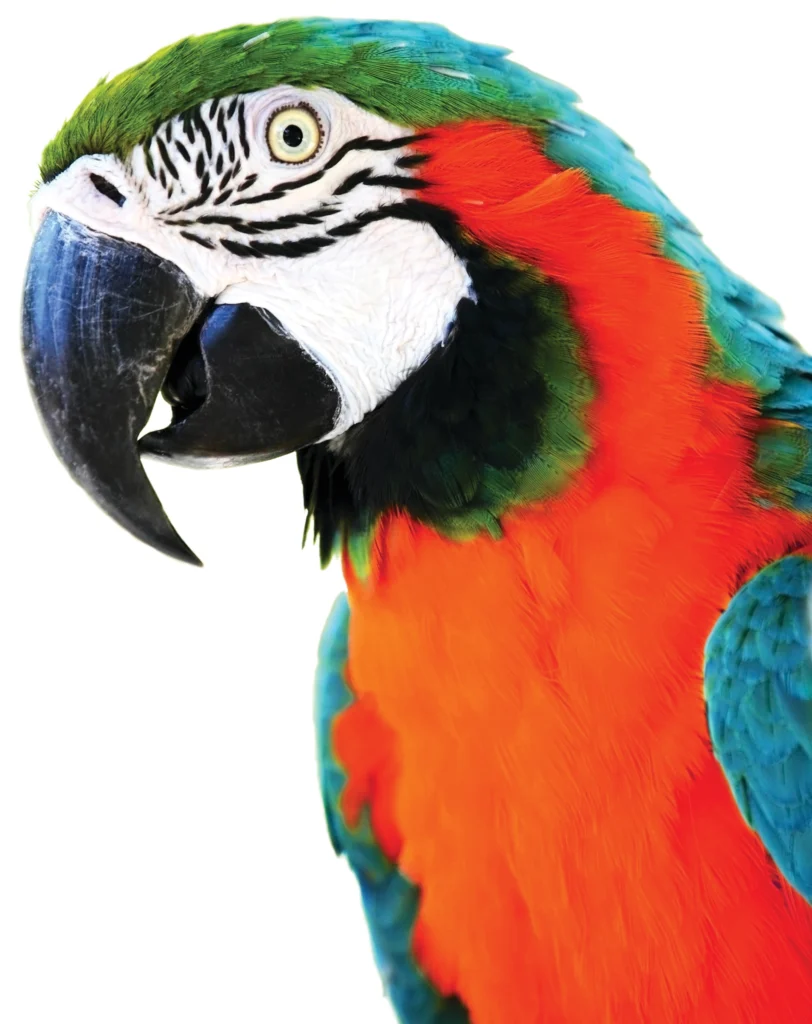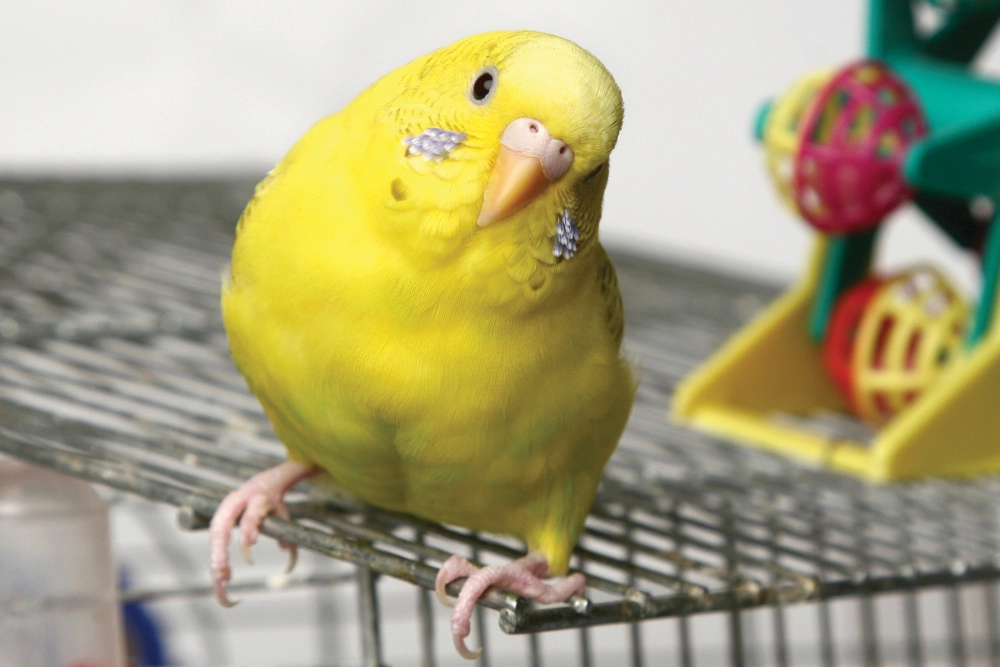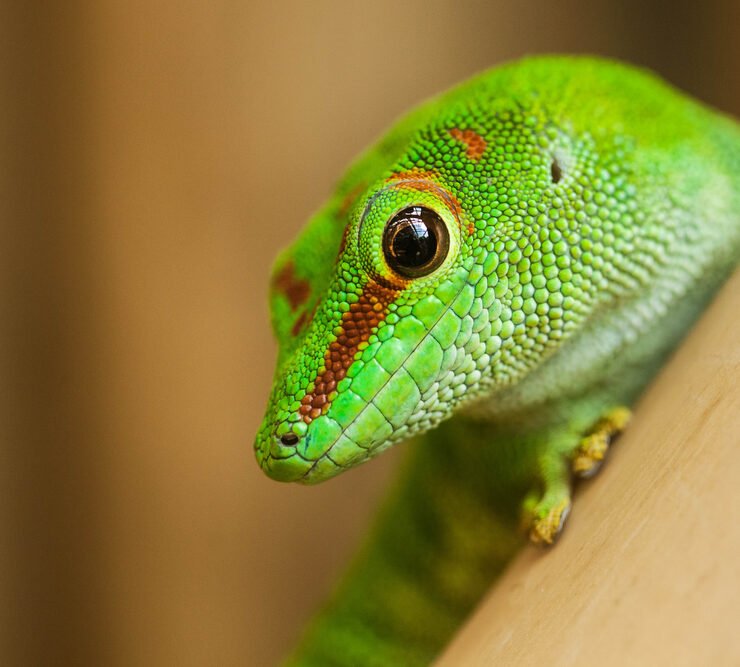In Fine Feather

Striking looks and friendly personalities tempt people to bring a feathered buddy to their homes, but bird ownership is a responsibility.
If you are thinking of bringing in a friend with wings, make sure you know how to keep it happy. With good nutrition and care, smaller birds will live for 5 to 10 years, whereas a lot of birds like macaws, parrots and cockatoos will celebrate their 50th birthday. Your bird may grow old with you and be your lifelong companion. Therefore, make sure you are ready to commit to its care for a long time.
Unlike cats and dogs, birds are not very expressive, so it gets hard to identify their feelings. You will have to pay good attention to your companion so as to identify its needs or any problems it may be facing.
TAKING CARE

If you are a bird owner, cleaning the cage is a regular exercise for you. With their quick digestion and tiny intestines, the food turns into droppings faster than you can imagine! Cleaning your bird’s cage can tell you a lot about their health. By cleaning regularly you can learn to recognize warning signs in your bird’s droppings. For example, less than 30 droppings per day is not a good sign. Veterinary care will be more useful and less expensive if you act fast. Along with that, your bird will get care quicker and have a better ability to live on. It is vital to keep the cage clean to avoid any bacteria forming in the cage that can cause different infections in birds. Nowadays, cleaning cages has been made easier by removable bottoms. All you have to do is pull out the bottom tray and replace the paper with a clean one.
A bird’s coat of feathers makes it hard to recognise many health problems like weight loss, skin diseases and other illnesses. Look for the following symptoms to help you identify a problem:
- Loss of hunger
- Frequent plump up of feathers
- Stress
- Discharge from the nostrils and eyes
A common cause of stress in birds is lack of rest and sleep. Many birds require 10 to 12 hours of sleep every night. Some people keep their bird’s cage by open windows or at places where noise and commotion keep the bird disturbed and awake. A lot of owners cover the cage with a sheet at night. Not all birds are happy with that, so it is best to ask a veterinarian regarding the most favourable sleeping pattern for your pet friend. Since almost all residences here are air-conditioned, veterinary care becomes compulsory because it is not easy for birds to survive in air-conditioned homes.

CAGES
While most pet birds live in a cage all their lives, they
require sufficient space to stretch their wings out at least. For sparrows and other tiny birds, there has to be sufficient space to fly from one end to another.
Some birds are so tiny that they may escape from between the bars of the cage, so you have to be careful while picking a cage for your bird, and make sure whichever cage you select suits the type of bird you have. When fixing the cage at home, keep it well above the ground for example on a counter or hang it from a safe hook. The cage should not be closed to open windows as strong winds cause serious harm to birds, also the temperature of UAE is too high and exposure to direct heat can be fatal.

FOOD AND NUTRITION
Like all living beings, birds require constant access to fresh clean water. Do not expect your pet friend to have the least of table manners! Birds are most likely to create a big mess while having meals and drinking water. Whether you use a sipper bottle or a bowl, make sure they are cleaned regularly.
All birds require specific amounts of nutrients and calcium is one of the most vital one. There are a lot of formulated pellet diets and seed mixes for nutrients. Such diets are more often than not given next to a choice of whole grains, seeds and fresh clean vegetables. Your vet can recommend a healthy grouping of meals for the particular kind of pet bird you have.
IN-FLIGHT
Psittacine birds like parrots, cockatiels and budgerigars must not be caged all the time because their high brainpower benefits from exercise and freedom. However, trying to catch a flying bird is extremely difficult, except if you tire it out to the point of fatigue, which possibly will be damaging to it. It also depends on the species how much flight freedom it should be given.
When a bird is in the air, make sure the windows are not just closed, but also covered, as birds can injure themselves by flying into clear glass.
Wings can be clipped for short terms. Correctly clipped wings will let the bird fly down from a branch, but put off mid-air crashes or easy escapes. Yet again, the suitability of this differs from species to species, so it is important to first seek advice from a veterinarian, and do not try clipping the wings yourselves unless you are skilled at it.

Most birds are strong and they do not fall ill as often as other pets, but that does not mean they do not need veterinary checkups. You must take them to a veterinarian for regular checkups and annual vaccines if any are needed. It would be great to know an experienced avian expert, a vet specializing in birds, in case of an emergency.
It is very common to hear families complaining of their pet birds not living long enough in apartments here. Keeping small birds in apartments where the air conditioner is switched on around the clock is not advisable. Birds need sufficient fresh air and temperature that suits their body type.
Always provide good veterinary care to your pet regularly. With everything checked on your list






